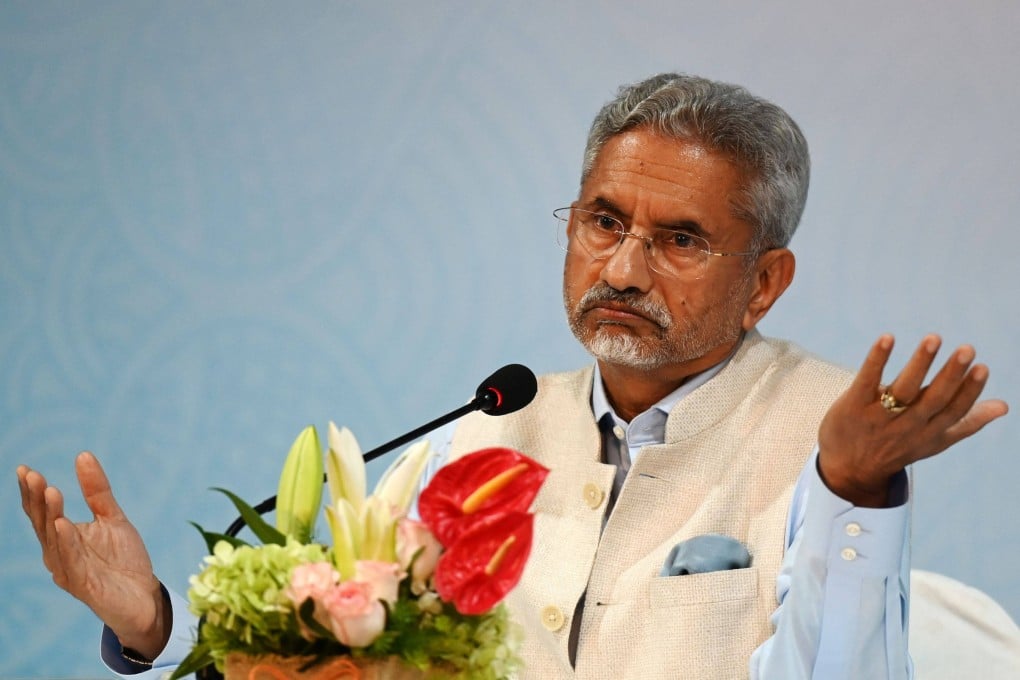Advertisement
China and India diverge on border dispute status after foreign ministers meeting
- Sino-Indian relations ‘cannot be normal if peace and tranquillity’ in border areas is disturbed, says New Delhi’s top diplomat at regional conference
- Subrahmanyam Jaishankar challenges Chinese readout claiming situation in disputed region is ‘generally stable’
Reading Time:3 minutes
Why you can trust SCMP
19

Khushboo Razdanin New York
China and India appeared far apart in how they assess their long-simmering border dispute as a foreign ministers’ meeting of the Shanghai Cooperation Organization (SCO) ended on Friday with both sides pledging to continue their dialogue.
Sino-Indian relations were “not normal and cannot be normal if peace and tranquillity in the border areas is disturbed”, said Indian External Affairs Minister Subrahmanyam Jaishankar at the close of the two-day regional diplomatic conference in Goa.
He was responding to a question about a Chinese foreign ministry readout, also released on Friday, claiming the situation at the China-India border was “generally stable”.
Advertisement
“My understanding of what the Chinese said, I think they used the word stable. I don’t think that’s the issue. I think the issue is that there is an abnormal position in border areas along the boundary,” Jaishankar said.
Tensions have stayed high along the 3,000km-plus frontier lining some of the most inhospitable stretches of the Himalayas following a fatal fist fight in 2020 that led to the deaths of at least 20 Indian and four Chinese men.
Advertisement
Advertisement
Select Voice
Select Speed
1.00x